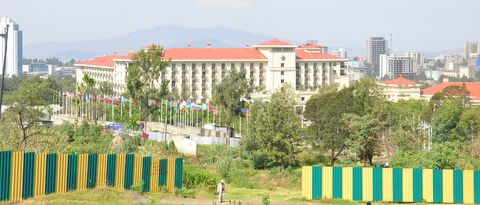Newsroom
Browse more

MNCs: You Can Be Angels Too...
By Laura Davis | Sun Nov 18 2012
Last week in Addis Ababa the Corporate Council on Africa, in partnership with USAID and several international agriculture companies, hosted the U.S.-Africa Agribusiness Investment Forum at the beautiful Sheraton Hotel. The forum provided an excellent meeting place for multinational companies, investors and development organizations to discuss the opportunities and challenges of investing in Africa's lush and untapped agriculture sector. I met so many interesting people working on great projects. The Ethiopia Commodity Exchange, Agriculture Transformation Agency, Overseas Private Investment Corporation, Africa Development Bank and a host of other important players participated in the forum. The panel discussions showcased new models for starting, growing and investing in agriculture business in Africa. However, I observed that there were only a handful of African-owned businesses in attendance. Granted, that may not have been the target market for the forum, but it made me wonder about one particular way our (the West’s) model for entering Africa could evolve. Here’s my reasoning:
One of the common stories I hear about “Africa” is how challenging it is to do agriculture here. The list is long - including issues with land rights, climate, supply chains, local unrest, limited willingness to trade with neighboring countries, etc. The predominant model for entering Africa it through joint ventures with large local companies, greenfield expansions, acquiring privatized government companies, or acquiring a majority stake in a large local companies. "Go big or go home" is the main way the West enters – because that’s how the economics of agriculture typically work.
I wonder if there’s a different approach for how the West can enter Africa’s agriculture market. MNCs usually have a CSR department, and for Africa that often means a fund to support the local community where the MNC is working - building school, drilling water wells, building a clinic, etc. In this way, the MNC begins providing what the local government cannot. Sometimes these programs work; sometimes they don't. But what if two years before entering an area in Africa in a big way, the company's CSR team took a different approach? The MNC could identify local companies (likely SMEs) along their supply chain. They could then use their CSR budgets to make strategic investments in the local companies, with the goal of building up capacity and quality to meet the MNC's standards. If successful, when the MNC is ready to enter the market, their brand would already be strong with the local community because of the investments they had made in the local economy and the jobs that were created. The returns they receive from these investments could be pooled in a fund, and perhaps matched by foundations and development organizations, to finance more “social” programs such as schools, wells, etc. Could this become a fully sustained system that grows together off successful business ventures? If I were the MNC, I would feel more secure about doing a big project, because over those two years of investing I would have learned a whole lot about the economy, working with the government, and I would have built strong relationships with the national, regional and local governments. The business community would know my name as it is associated with “MNC Ventures.” My MNC would have become an “impact angel” investor!
In light of this strategy, it would be interesting at next year's Forum to have a breakout session with an MNC, a co-investor and a portfolio of pre-selected companies along the MNC’s supply chain. The local businesses would pitch their company’s products and services, their investment needs and their projected returns to the MNC and investors. The MNC, as the future customer and the investor, would select the most promising companies that align with their future business needs, and then have another meeting with local partners and co-investors to develop an investment plan that would build the capacity of these local businesses to meet the MNC’s future needs. As a result, the MNC would be committed, because they are investing their money instead of donating it (and may be less likely to back out on year two), the development community would have a clear business focus to support, the co-investors can share the risk, and the local businesses... well, let’s ask them.

Loading footer content...
Related Posts









